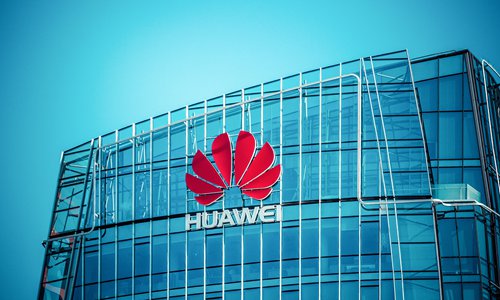HOME >> OPINION
West’s attempt to slander Huawei will fail
By He Wenping Source:Global Times Published: 2019/8/28 17:53:40

Photo: IC
The Wall Street Journal published on August 15 an article, not only accusing China's telecom giant Huawei of selling "security tools that governments use for digital surveillance and censorship" in Africa, but also alleging that Huawei employees have personally "helped African governments spy on their political opponents." Such absurd accusations were soon denied by the countries and Huawei.
Throwing mud at Huawei is in fact an old trick of the West led by the US. Washington has been cracking down on Huawei in all ways. In addition to containing the Chinese company in its own territory, the US has been lobbying European countries to exclude the tech titan from their 5G programs, and now it is attempting to play the same trick in Africa. Such a move reveals the US intention to thwart Huawei's development globally and to prevent China from taking the lead in 5G technology.
The US is strengthening its containment policy against China. Seeing the rapid and steady development of China-Africa relations, Washington has been unable to resist taking steps. For example, US President Donald Trump's administration released its Africa Strategy in December 2018.
In the past, the US focused more on drawing Africa over to its side ideologically and forcing the continent to adopt the American model instead of the Chinese one. Now it has started to roil Africa's political ecology, linking a Chinese private company's technology with politics.
Western countries have also developed high-tech industries in Africa. Why haven't they linked their own technologies to political issues? But when China is making efforts in these domains, the West has begun to guide opinion. The West's behaviors show its bullying mind-set - it can do whatever it wants, but deprives others of their rights.
Be as it may, its attempts will be eventually futile. In January 2018, French newspaper Le Monde reported that data from computers in the China-built African Union headquarters had been "transferred nightly to Chinese servers for five years." The African Union officials soon rejected the report. Rwandan President Paul Kagame, who was then African Union chairman, said that "I don't think spying is the specialty of the Chinese. We have spies all over the place in this world... But I will not have been worried about being spied on in this building."
It can be seen from these cases that our African friends have their own wisdom, and the West's attempts to alienate them from China are doomed to fail.
Regardless of the West's tricks, China and Africa have been working closely in the economic field. Huawei and other Chinese corporations are well developed in Africa, and Chinese products are quite popular among the local people. Chinese producers can always meet Africa's market needs. For instance, Huawei smartphones' industry-leading cameras and dual standby function cater to African customers' likes.
In addition to the communications industry, strong bonds have been formed between China and Africa in other domains. China has been helping African countries with infrastructure, including port, railway and road construction. As Africa launches economic integration plans and proposing a free trade zone initiative, China is also helping the continent develop industrial parks. All these efforts are laying the foundation for Africa's economic take-off.
Besides, China has been assisting Africa in human resource training and carrying out medical cooperation with the continent. For example, since the Democratic Republic of Congo declared an outbreak of Ebola in August 2018, China has been providing equipment and medical support.
China is cooperating with Africa wholeheartedly. The West's scheming is bound to achieve nothing.
The author is a senior research fellow of the Charhar Institute and China Africa Institute. opinion@globaltimes.com.cn
Posted in: VIEWPOINT